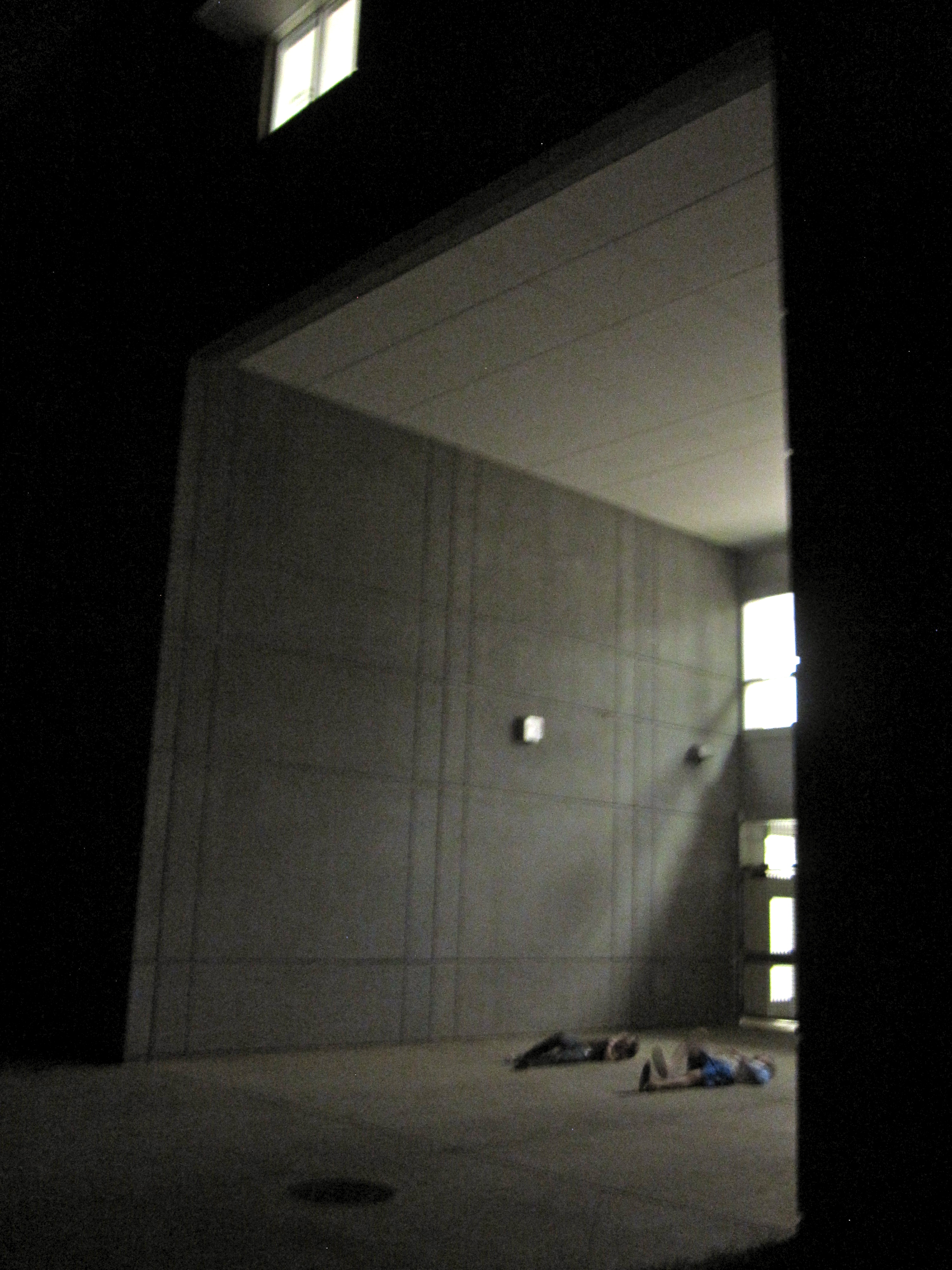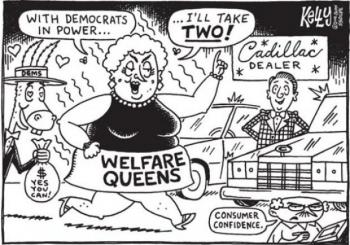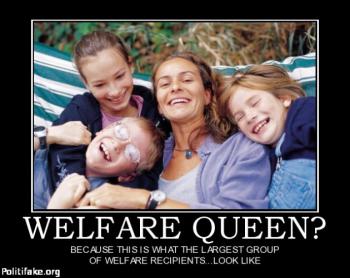Serendip is an independent site partnering with faculty at multiple colleges and universities around the world. Happy exploring!
Walled Women

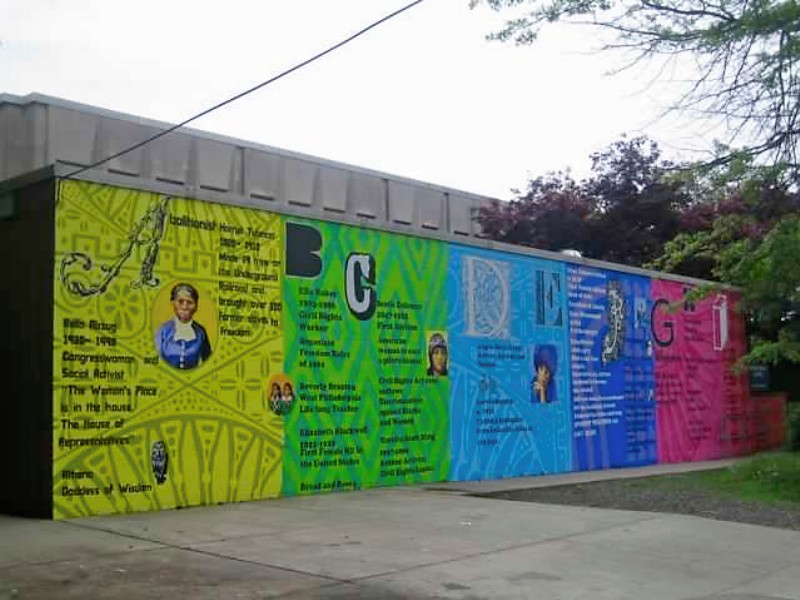
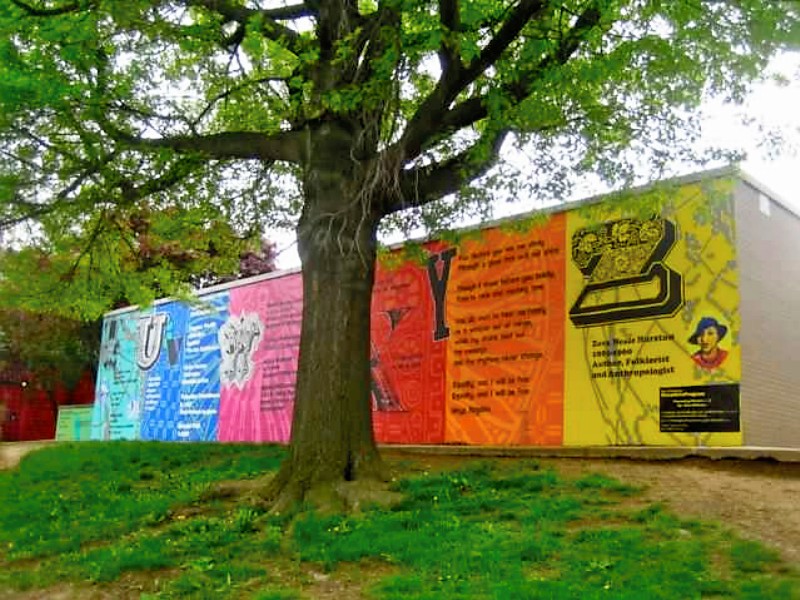
POST YOUR THOUGHTS HERE
Welcome to the on-line conversation for Women in Walled Communities, a cluster of three courses in a new 360° @ Bryn Mawr College that focuses on the constraints and agency of individual actors in the institutional settings of women's colleges and prisons.
This is an interestingly different kind of place for writing, and may take some getting used to. The first thing to keep in mind is that it's not a site for "formal writing" or "finished thoughts." It's a place for thoughts-in-progress, for what you're thinking (whether you know it or not) on your way to what you think next. Imagine that you're just talking to some people you've met. This is a "conversation" place, a place to find out what you're thinking yourself, and what other people are thinking. The idea here is that your "thoughts in progress" can help others with their thinking, and theirs can help you with yours.
Who are you writing for? Primarily for yourself, and for others in our cluster. But also for the world. This is a "public" forum, so people anywhere on the web might look in. You're writing for yourself, for others in the class, AND for others you might or might not know. So, your thoughts in progress can contribute to the thoughts in progress of LOTS of people. The web is giving increasing reality to the idea that there can actually evolve a world community, and you're part of helping to bring that about. We're glad to have you along, and hope you come to both enjoy and value our shared explorations. Feel free to comment on any post below, or to POST YOUR THOUGHTS HERE.

On affirmative action...
I've been thinking a lot about our class discussion about the Supreme Court case that would effectively end affirmative action.
In this clip, from Real Time with Bill Maher, actress Kerry Washington debates (informally, but swiftly) commentator Will Cain on the issue, fighting his suggestion that we live in a post-racial society. I feel like this encompasses a lot of what my feelings are on the issue, and brings up a lot of great points, so please watch if you're interested!

Representation of Schools and Prisons Through Tupac Shakur
Growing up, I learned a lot about the injustices in this world through music, especially through rap. So I will use this form of media to represent schools and prisons. I am posting two things from activist, poet and late artist, Tupac Amaru Shakur. One is a video of his song "trapped" which is filmed in a prison and talks about the ways in which black men--hard to find content on female incarceration--are targeted and, ultimately, trapped in and beyond prison. I have also included the lyrics. The second thing I wanted to share was an interview (in transcript form although the entire video is on Youtube) from Tupac at age 17 speaking in great detail about the injustices in education and the irrelevance of some its subjects. I love this interview because it is from the perspective of a subject we have only analyzed and have not really heard from: a young person of color from an inner-city background. I'd like to share my favorite excerpt. It is Tupac talking about what should be taught in schools:

Wow! Your tax dollars at work! CAN YOU GUESS WHAT THIS IS?
I have very distinct memories of this chain email going around showing images of a new prison in Austria, which were falsely attributed to a Chicago prison. There was complete outrage that tax dollars could pay for a prison so luxurious, and I immediately thought of the email when Jody asked to show our images of prisons.

A video about urban education which I loved...
http://www.ted.com/talks/stephen_ritz_a_teacher_growing_green_in_the_south_bronx.html

A poor dramatization of the Trayvon Martin case
(image and link to video under "Read More")
The Canadian police procedural TV show "Rookie Blue" is kind of a guilty pleasure of mine. Its tagline is that it's like "Grey's Anatomy" with rookie cops, and it shows the day to day lives, cases, and yes, romantic travails of 5 rookies and their superiors. This past summer, the show (in its 3rd season) had a storyline where one of the rookies, Epstein, shoots a young black man, Tyler Marks, in a convenience store because he believes that there is a robbery in progress. Tyler is wearing a hoodie and "looks suspicious" in some way to Epstein, and Epstein thinks Tyler has a gun, so he pulls out his gun and shoots, wounding Tyler fatally. In the investigation following Tyler's death, the Internal Affairs department questions Epstein's belief that Tyler was holding a weapon of any kind. This episode reminded me a lot of the Trayvon Martin case, in which a young black man was shot essentially for wearing a hoodie and being black. I had hoped that the show would address the underlying racism of Epstein's actions, and find him guilty of murdering Tyler without cause. But, instead, to make the show lighter and keep Epstein's name clean, it is decided that he was not wrong to shoot Tyler, because there was another young black man in the store who was actually robbing it, and so Epstein had "valid" concerns for his own safety.

Prisons and Schools – Images
Like Owl, I went to a huge high school, so I'm including a video that was made of my school a few years before I went. I think it gives a fairly good sense of the scale of the school, but it's also interesting because of the similarities and differences to prison. The security guard checking people in, for example, is more similar to prisons – and in fact, after this video was made, scanners were installed at the entrance to the school so that students had to scan in or out of the building to track attendance. Unlike prisons, though, movement of students in the hallways and common spaces was fairly unrestricted.
http://www.youtube.com/watch?v=mun_xeznxT0
Next I wanted to share a fairly well known media representation of prison – the women's prison in the musical Chicago:
http://www.youtube.com/watch?v=xqV7HOVOPLE
And finally, I found two images – one of a school building and one of a prison building. Which one do you think looks more forboding?



Post-Cannery dinner?
Just throwin' it out there, but might anybody be interested in going to dinner in Center City after Friday's class in the interest of getting to know each other/celebrating Restaurant Week? No pressure, I just thought it might be fun!

Mural Arts, Redux
This summer, my daughter Marian told me that, as a birthday gift, she wanted to treat me to a Mural Arts tour. Researching the various options, she came upon the Restorative Justice tour (and the rest is history. Our 360 went. We saw. We problematized....)

Consciousness
I posted the picture below because I was introduced to the Prison Industrial Complex by learning about Angela Davis. Every time I think of prisons I can't help but think of her movement and her books. I also think that the fact that a black boy is wearing a shirt of her speaks to the facts we've been learning in class about the incarceration of black bodies and the inability of schools to respond to their needs. However, this guy perhaps has some consciousness, I see him as a direct contradiction to a system that wants him to fail. By wearing an Angela Davis shirt, he is speaking his consciousness and at the same time standing for those who like him that have been chased by the prison, schooling, etc. system.
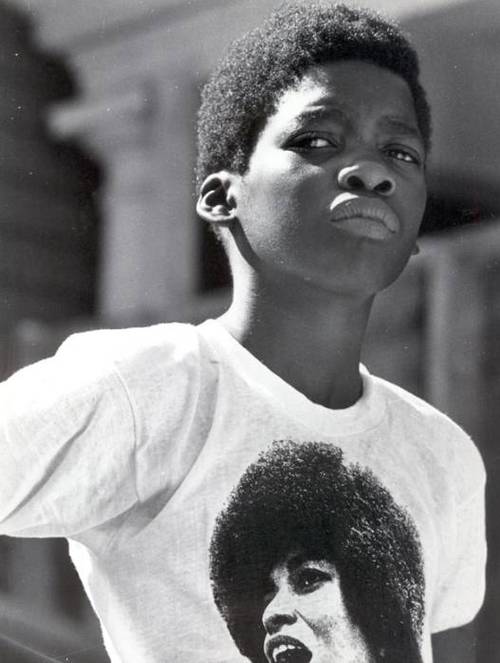

Transformative pedagogy
As many of you know, I missed class this past Thursday and Friday to go to the annual Peace and Justice Studies Association meeting, which was being held at Tufts. The whole conference was really great and picked up on so many themes that we’ve been discussing in all three classes. In particular, a session called “Living Our Way Into the Answers: A Workshop on Transformative Pedagogy” really tied in to what we’ve been doing in class. The workshop was really interesting because out of the 30 or so participants, it ended up being split relatively evenly between students and professors. So, while much of the conversation about what transformative pedagogy means for students echoes the things we’ve been talking about amongst ourselves, hearing the teacher-perspective was really fascinating. Beyond the obvious conversation about how to introduce radical pedagogy in a system obsessed with learning objectives and outcomes was the emotional drainage many professors felt – like they just didn’t have the energy to be “transformative” anymore. This is something I haven’t really thought of in terms of my own professors or my friends who aspire to be transformative teachers one day. I also talked about our 360, and got a lot of questions from interested professors about what it’s been like.

Educational Debt: What is specifically owed?
For two days now, I have been thinking about the term, "eduactional gap" mentioned in Girl Time. I think it is a more accurate term than the acheivement gap. I have always disliked this term because it implies that this gap, which never seems to closes, is the fault of the students who are "low-acheiving." It implies, much like in Haney with the female offenders, that it is the responsibility of the student to make up the difference. I used to be all for individualism, which Meiners mentions, but now I see how our society's mindset on individualism can obscure reality and make people believe that the conditions of their lives, good or bad, are a result of their own actions...or lack of action. When, in fact, systems of oppression play a huge, and yet distant, factor in everyone's lives whether to an advantage or disadvantage. I 100% agree that the gap in our education is actually a collection of overdue debts, particularly to inner-city youth. However, as I write this, I am not sure about what exactly is owed us--yep, that includes me--to succeed. What kind of reformation needs to happen? And is it the responsibility of the students who are negatively impacted by the "gap" to make change? This debt that we speak of is more than money, it is SO big--it's like asking to undo the history of racism! This seems highly impossible even though I really want to be optimistic.

Prison and School Across Music, Television, and more
http://www.youtube.com/watch?v=v7gV5C5mB7A
http://www.youtube.com/watch?v=OG3ieifrqyQ
http://www.youtube.com/watch?v=Sw9DADUh490
http://www.youtube.com/watch?v=sBg7AqXRwqg
http://www.youtube.com/watch?v=kR2wfLyT-b0&feature=related
http://www.youtube.com/watch?v=1GZZ13rJsus
http://www.youtube.com/watch?v=Mb1ZvUDvLDY
This is my high school. To give you a picture of how many kids were housed in this school here is following statistic: My graduating class was over 500 students. This does not include students who didn't quite make the cut and all the rest of the school population.

Visiting hours in prison.
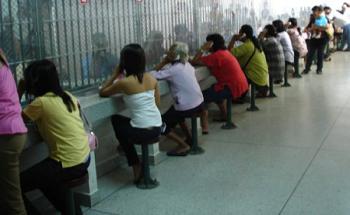

"But look at me, I got away"
As I'm reading pages 26-27 in Brothers and Keepers, I could not help it but to pause and write. The part where he begins by writing, "The problem was that in order to be the person I thought I wanted to be, I believed I had to seal myself off from you, construct a wall between us" (26). This line really struck me. Although I am still trying to tie this theme/topic to silence, I'd like to reflect a bit on what he continues to say as he writes.

Keepers of Silence
After reading only the first page of Brothers and Keepers I could already see how silence and voice found common ground--as described in Yves-Charles Grandjeat's article--in Wideman's ability to speak to his brother in the form of letters. The distance and silence between Wideman and his brother allowed him to be hopeful that his brother might reunite with him despite the space, time, and unknowingness that existed between them-the silence. In this case voice was the unwillingness to get caught up in the "sense of urgency, of inpending disaster..." (pg5) that was plaguing those in close physical proximity to his brother's crime. This really makes me wonder about our definitions of voice and how more often than not we refer to voice in our class as the literal ability to speak out and the limitations that prevent people to do so due to race, gender, and/or class. I think that another way to understand voice is to look at it as choice: having the choice to create silence is also voice. Wideman chose to move away from home and in this action dilIberately created space and silence between him, his brother, and his family. However, it is crucial here to understand how silence as voice can also be a used as a silencing tool. For example, lately in our class, we have been discussing how choosing silence allows others to speak. I am not opposed to the sentiment behind this, however, I do realize another effect that choosing silence can have on the class in its entirety.





